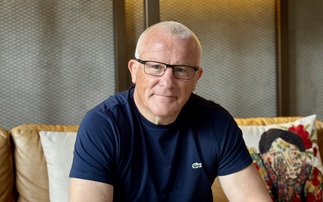Jupiter's new CEO Maarten Slendebroek talks about fund pricing, taking over from Edward Bonham Carter, and what the future holds for the group.
Although still an equity-focused house – three quarters of total AUM is held in the asset class, according to Barclays – Jupiter has spent time growing its fixed income offerings in recent years, most notably via Ariel Bezalel’s successful Strategic Bond and offshore Dynamic Bond funds.
Looking ahead, Slendebroek said the group would be selective about launching products.
“We are less well represented in the global equity space, and will do more there. Similarly, in fixed income, we want to expand the range to focus on global offerings.”
One thing on which Bonham Carter was particularly insistent during his time at the helm of Jupiter was the need for active managers to justify their pricing models through strong performance coupled with an investment approach that avoids benchmark-hugging.
Those demands have become paramount at a time when passive funds are cutting their fees to the bone. Comparing the pressure on active costs to “round four of a 15 round fight,” Slendebroek said most investors understand “running money costs money” but, with some ETFs now priced at 0.07%, the costs are not what they used to be.
This in turn is reflected in the recruitment and product development policies Slendebroek wishes to instill: “To create alpha, you need to operate in markets where there is the potential for dispersion. It is unlikely we will go down the route of plain vanilla funds.”
The CEO is looking for different voices to contribute to this process, pointing to the recent hire of James Clunie and Robert Siddles from Scottish Widows Investment Partnership and F&C respectively.
James Clunie brings with him a specific skill; he has a more quantitative approach.
“Bringing a new voice to the floor is what I look for in a manager: Robert Siddles, for example, brings a much more value-driven slant than average on our investment floor.”
Hiring more talent will not mean the group goes down the acquisition route, however. Slendebroek confirmed the group has made this decision “very clear to shareholders” with its focus on dividends.
The company is targeting a payout ratio of around 50%, and analysts expect a special dividend may follow this year after the sale of the private client business.
Slendebroek does have one small caveat to the no-acquisitions rule, however: if a team he likes is sitting in a corporate shell, rather than at a competitor, then a small deal is not out of the question to bring in a specific strategy. But he is cautious of mergers in general.
“We do not have the experience of buying and integrating firms. You will not see some kind of industrial-style acquisition from us. With acquisitions, there is always a tough time of some kind, and I think growing organically makes for a happier, less disrupted firm.”
CV: Maarten Slendebroek
2014
Took over as Jupiter chief executive
2012
Joined Jupiter as distribution and strategy director
2009
Head of international retail at BlackRock
2008
Head of BlackRock solutions, EMEA
2006
Head of pan-European retail sales, BlackRock
2000
Various roles at Merrill Lynch Investment Managers, including head of retail and institutional sales EMEA












